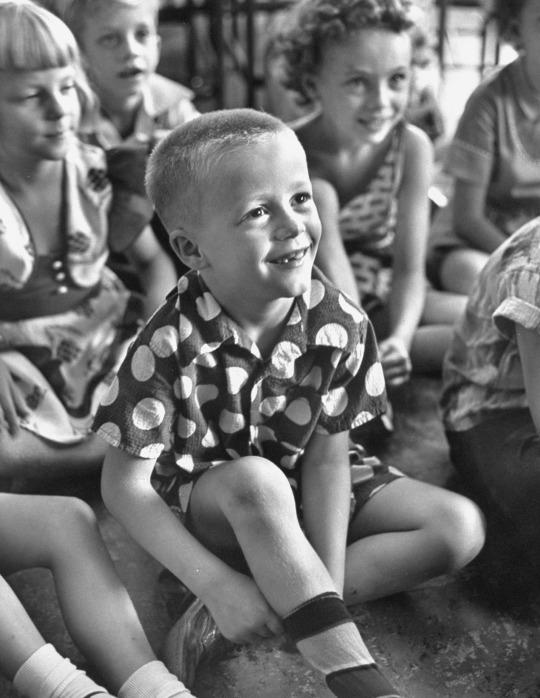Should the Entire Class Attend Your Kid's Birthday Party? The Great Debate

Birthday parties are joyful occasions for both parent and child, but they can also offer a social etiquette conundrum, even before the party gets started — which kids in the class get invited?
STORY: Should Kids Be Allowed to Watch the News? The Great Debate
While some parents feel that inviting their child’s entire class to a birthday party is the only way to ensure that everyone feels included, others say a blanket invite is impractical and expensive. What’s more, forcing children to include kids they don’t know, or in some cases don’t get along with, interferes with their decision-making skills. What’s the right thing to do?
STORY: Does Your Kid Need to Drink Milk? The Great Debate
What the research says
While few studies have examined the effect that exclusive parties have on children, according to research published in the Journal of School Psychology, feeling left out has a damaging effect. Children who feel rejected by their peers have more academic and behavioral problems than nonrejected kids, and they struggle to form strong social ties. What’s more, rejection can be a vicious cycle — kids who struggle socially have fewer opportunities to practice their people skills, while the more popular kids are busy perfecting theirs.
Feeling excluded also hurts physically, triggering activity in the same part of the brain that controls physiological pain, Judith V. Jordan, PhD, an assistant professor of psychiatry at Harvard Medical School, told Real Simple magazine.
Children whose parents are too involved in their lives (for example, those who oversee the birthday guest list) may be deprived of the ability to make independent decisions, Alvin Rosenfeld, MD, co-author of The Over-Scheduled Child told Parenting.com. Speaking broadly of what he calls “over-involved” parents, he says, “Most of these parents think they’re helping, but the kid feels he’s flawed, since he obviously needs so much direction and assistance.”
On the other hand, empathy is a valuable skill to hone, and kids as young as 6 are able to demonstrate it, David Sack, MD, wrote on the Huffington Post. That trait serves a child well throughout his life, helping him resist negative peer pressure and suppress narcissistic and violent tendencies.

What the experts say
From preschool to first grade, children tend to make and change friends fairly quickly with whoever is in their class and often extend invites to everyone. But as children get older, party sizes tend to decrease as friendships solidify among peers who have real, strong connections, Jenn Berman, PsyD, author of The A to Z Guide to Raising Happy, Confident Kids told Parents.com.
According to etiquette expert Emily Post, if parents plan on having their children hand out invitations at school, it’s advisable to include each child in the class. (And this very well may be the policy at your child’s school.) If only some of the class is invited, kids should be invited by mail or phone. To keep parties at a manageable level, Post recommends the “age plus one” rule—in other words, if you have a 5-year-old, invite six kids.
Another idea that will help avoid hurt feelings is to filter the list by category, Elise McVeigh, a Dallas-based etiquette expert told Parents.com. For example, parents of sons can invite only boys and parents of girls can invite only girls. Or keep the guest list restricted to groups such as neighborhood friends or the soccer team. That way, if someone is left out, it feels less personal.
Unfortunately, children’s feelings do get hurt from time to time. So if your kid is not invited to a classmate’s party, use it as an opportunity to help him or her cope with rejection and develop resilience, Ashley Merryman, co-author of the book NurtureShock: New Thinking About Children, told CNN. Parents should discuss with their children the feelings that go along with being excluded and share concrete reasons for why this may have happened so kids can make sense of the situation.
What the parents say
“It’s not realistic to invite the whole class. If your home is not big enough to accommodate all the children — which is often more than 20 — you have to look for another venue, which can be expensive. There’s also food, cake, and favors to think about. Another thing to consider is a child’s temperament. My kid tends to do better in a smaller group that’s less stimulating and since it would be his birthday, I want to do what’s best for him.” — Lauren, New York, N.Y.
“We always invite the whole class. As a former child who had a hard time making friends, I know the feeling of being excluded. And the other kids do find out. Being left out stings.” — Margaret, Texas
“My child’s school has a policy that if you hand out invitations at school you must invite the whole class, and I like that. Kids will eventually learn that not everyone gets along, but there are other lessons: Being polite, kind, and not hurting feelings.” — Margo, San Francisco
The bottom line
Whether or not to invite every kid in your child’s class to a birthday party is a personal decision — but one that should take into account how old your child is and what the rules at school are, as well as any logistical concerns you may have. Consider what you want to teach your child about manners and inclusion and also how you will handle any small rejections that may come when he or she isn’t invited to a party.
Please follow @YahooParenting on Facebook, Twitter, Instagram, and Pinterest. Have an interesting story to share about your family? Email us at YParenting (at) Yahoo.com.
